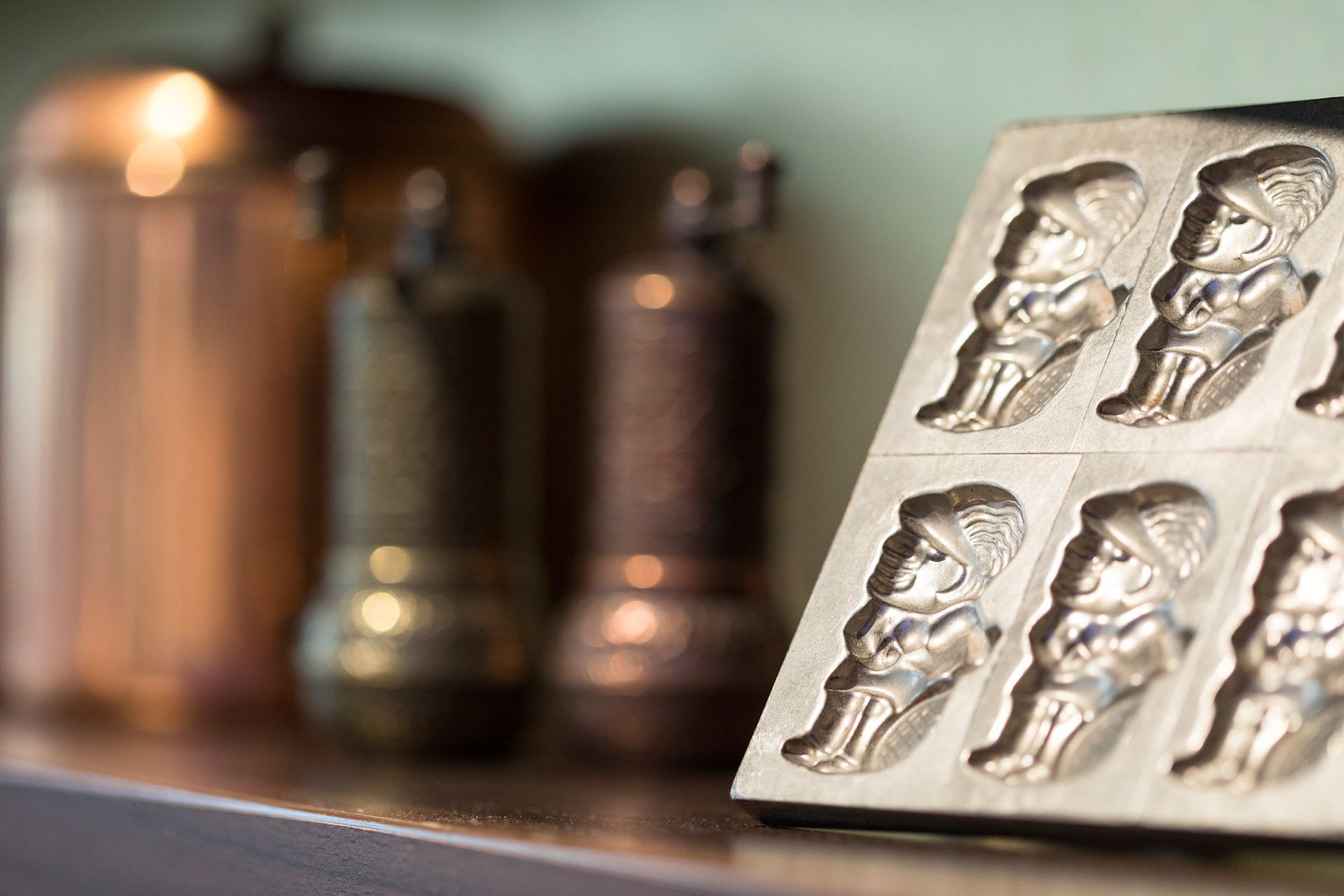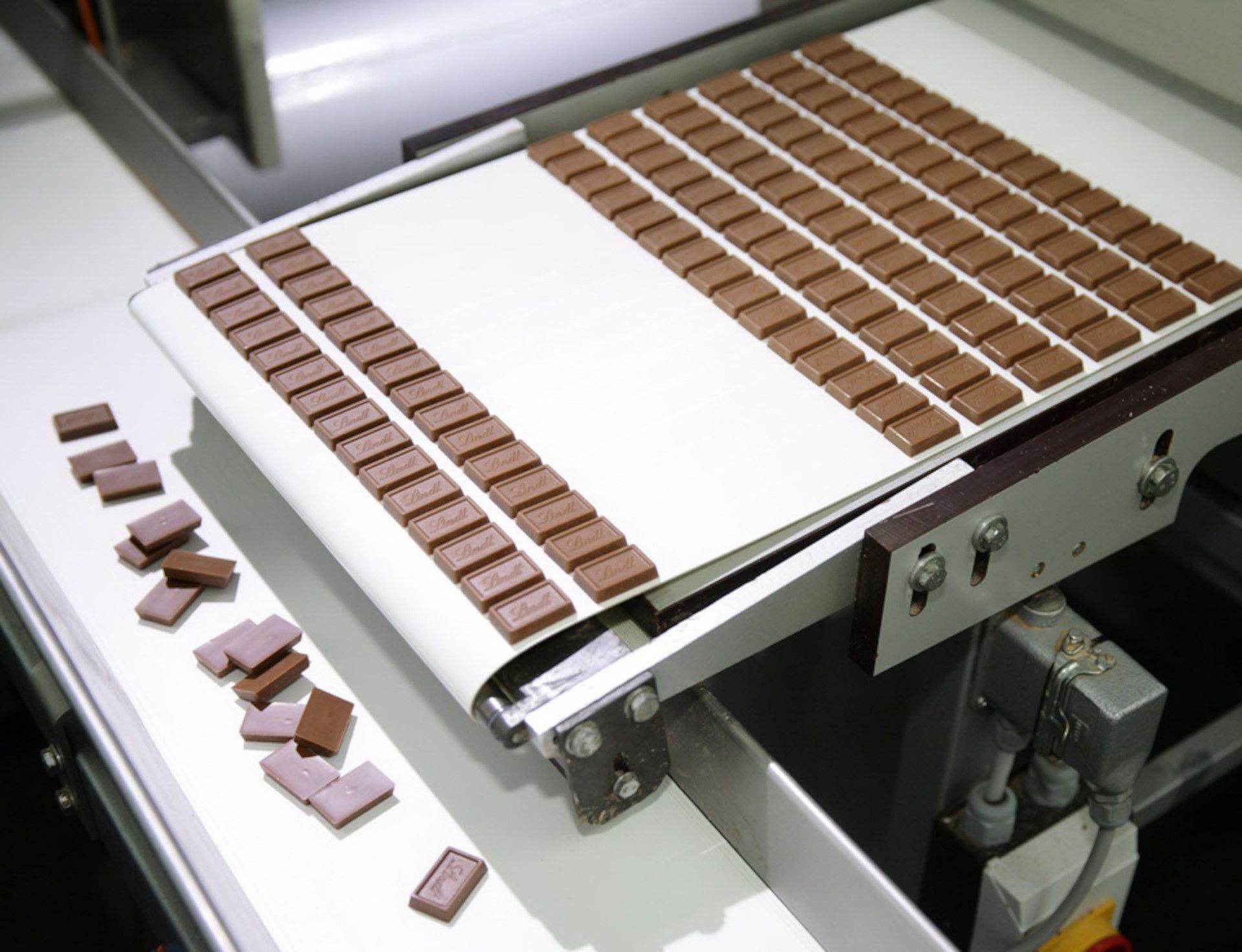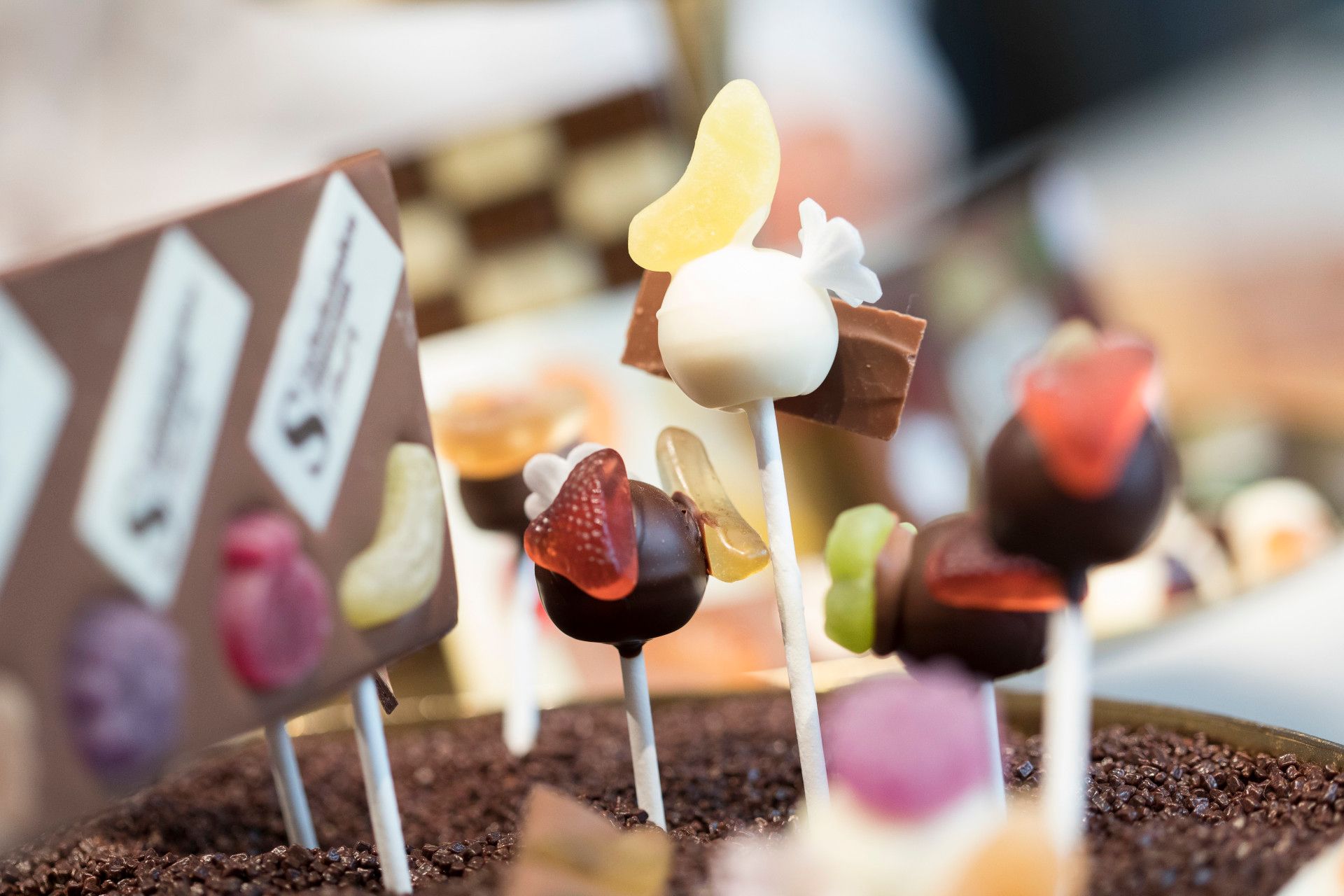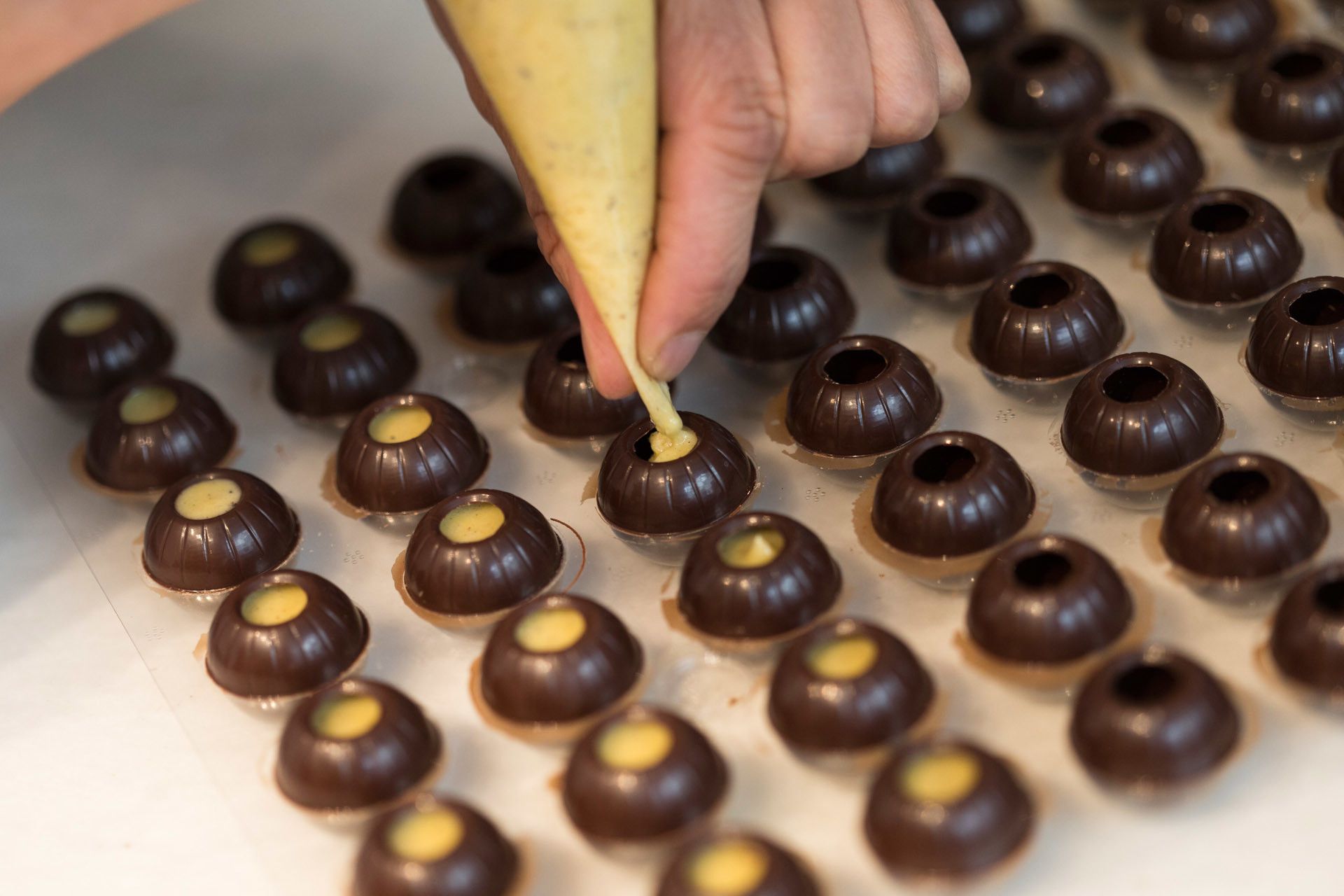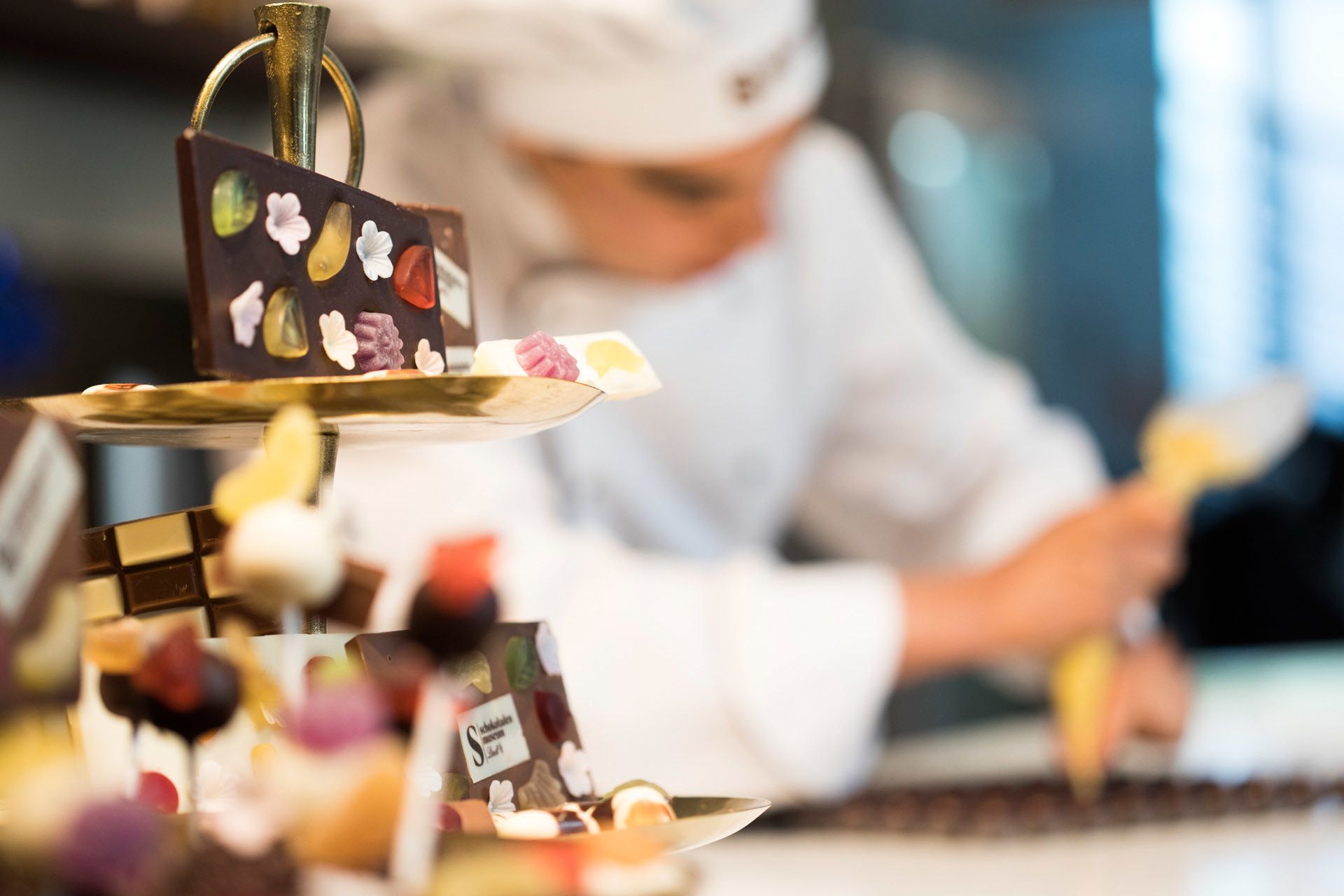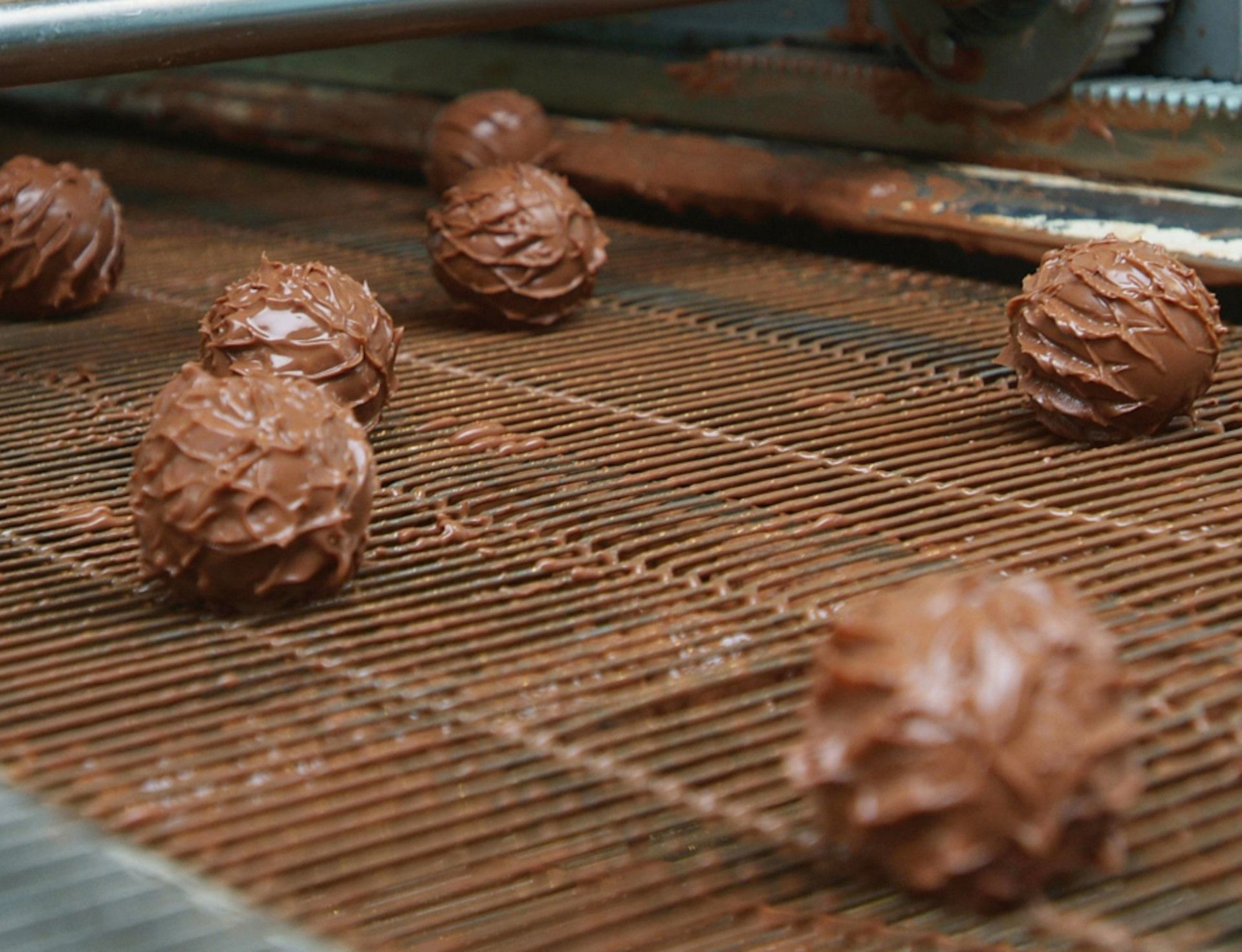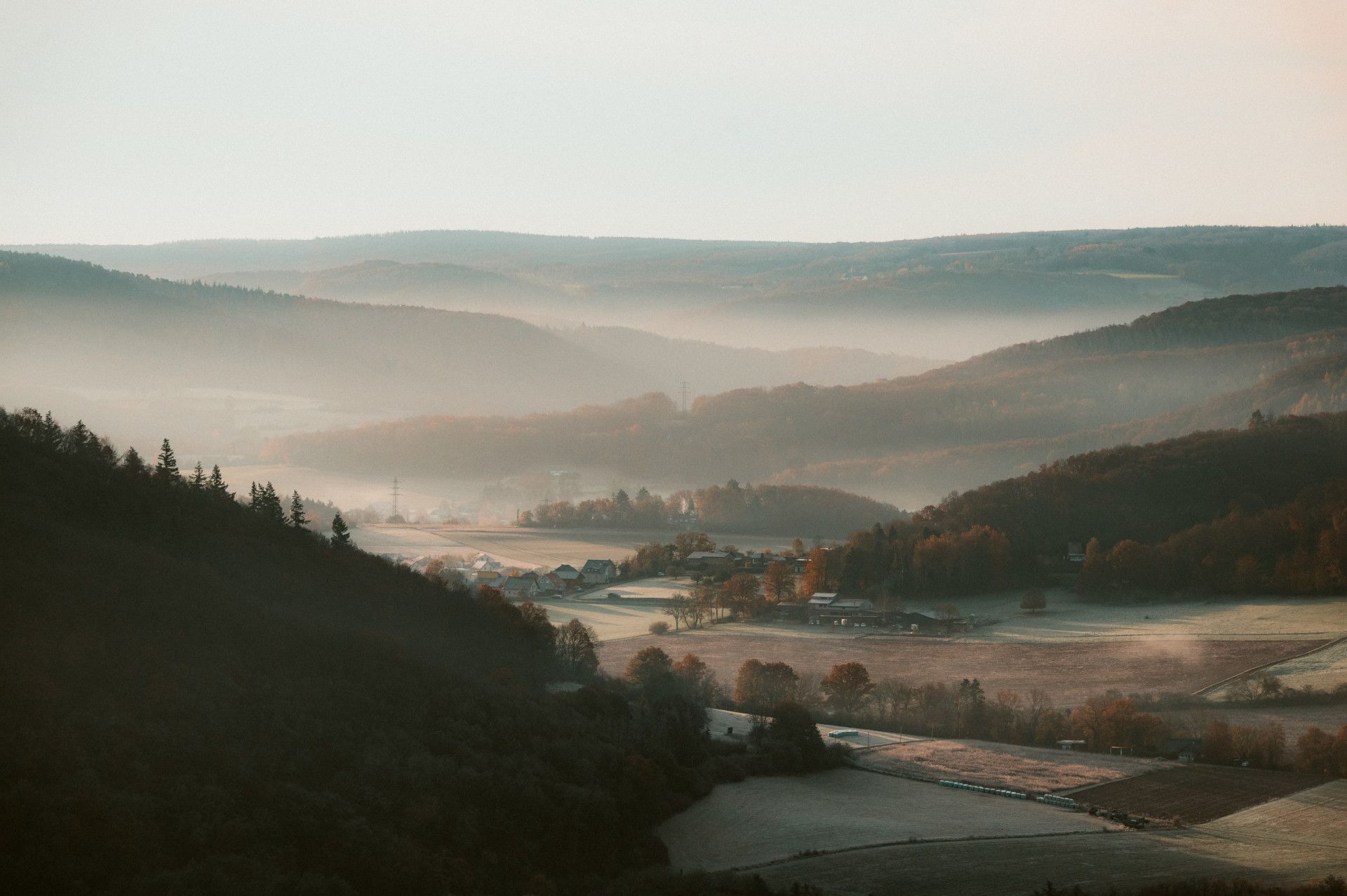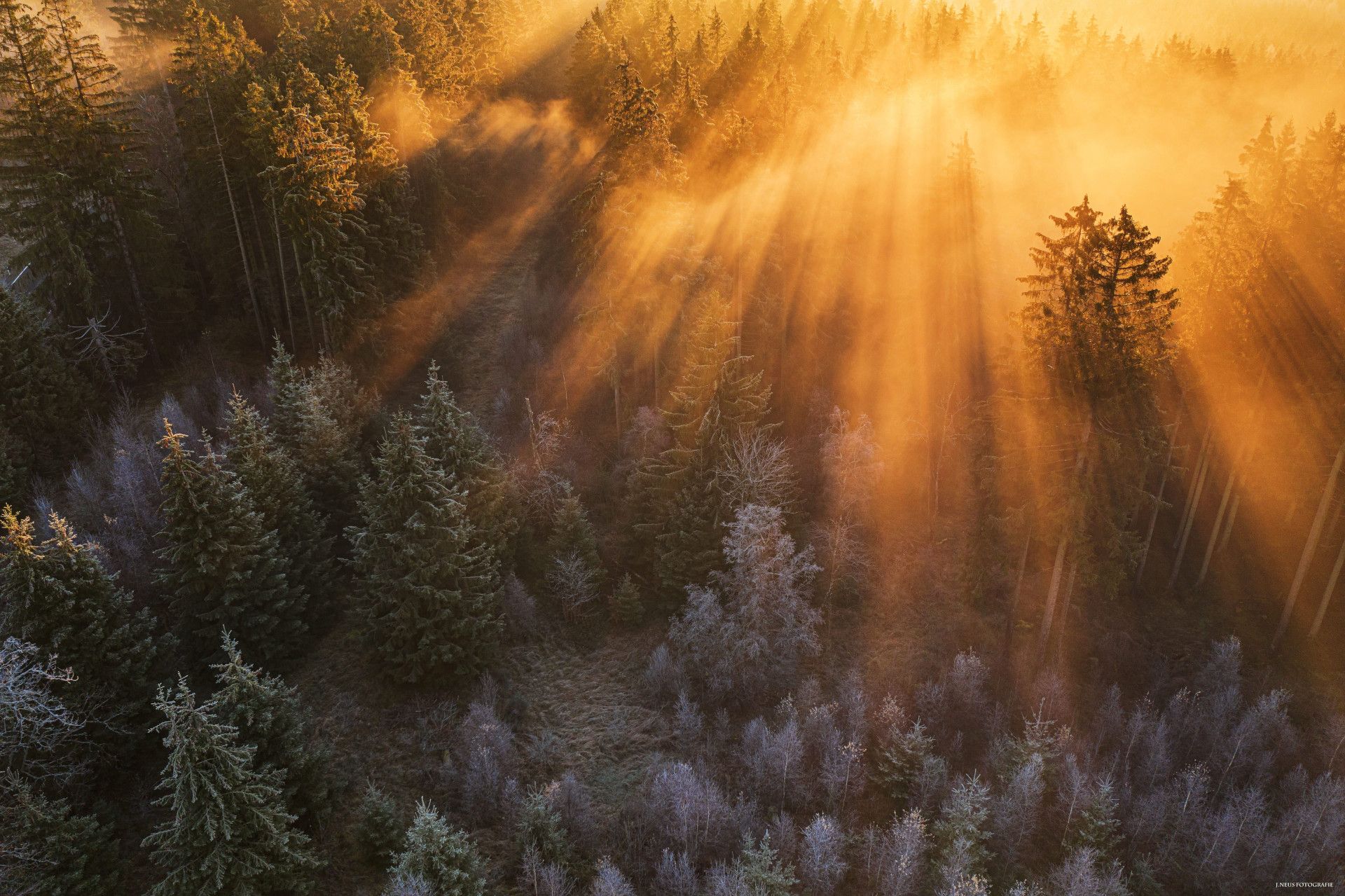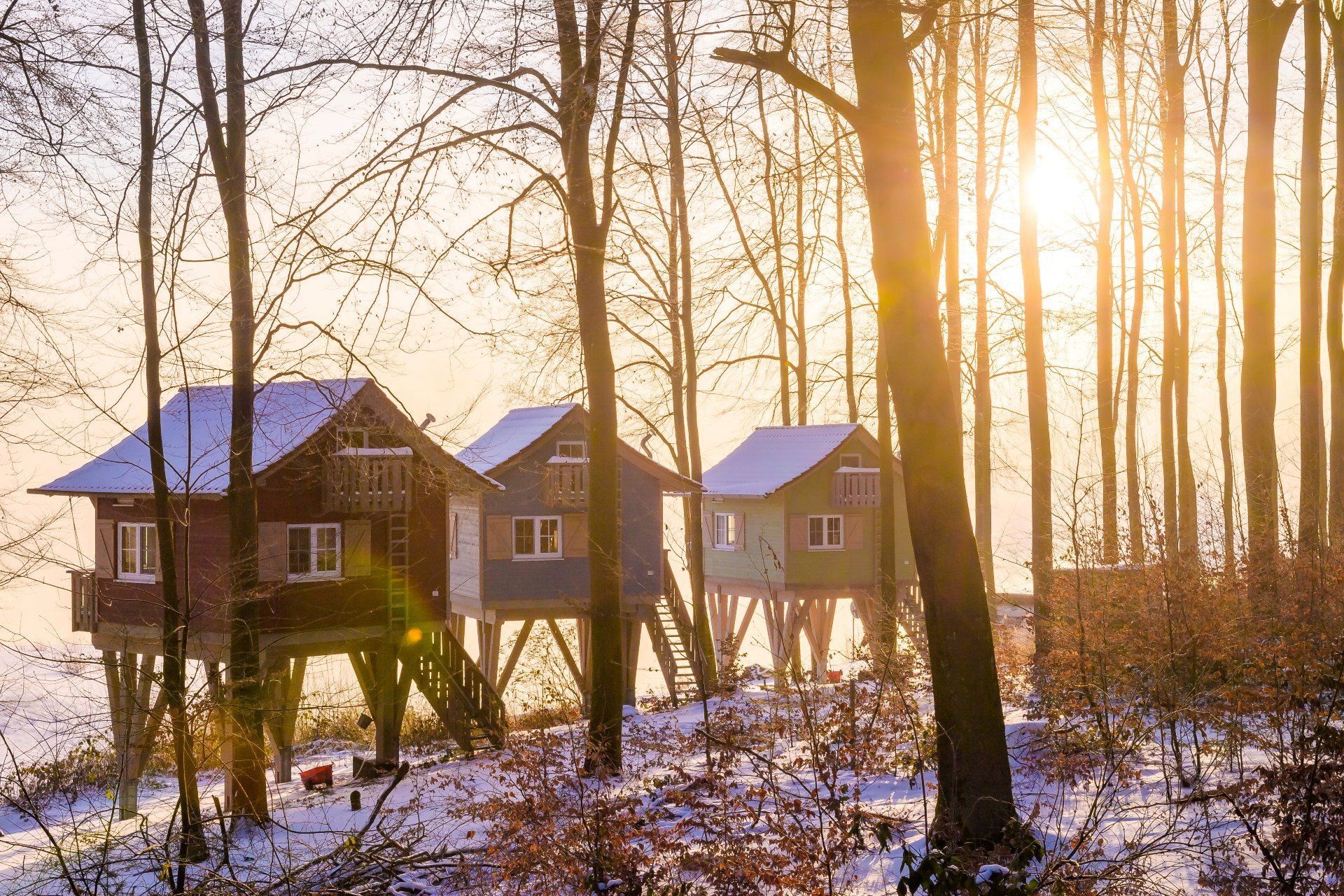A sweet smell hangs in the air early in the morning. The smell of chocolate. Because even before the first visitors enter the glass building in Cologne's Rheinau harbour, production at the Chocolate Museum is already in full swing. The viscous cocoa mass has to be stirred in the "conche" for three days before Aiga Müller and her colleagues can process it into chocolate bars, pralines and small figurines. "This is what makes the chocolate melt so smoothly," explains the Maître Chocolatier as she dips a small wafer into the chocolate fountain and gives it to us to try.
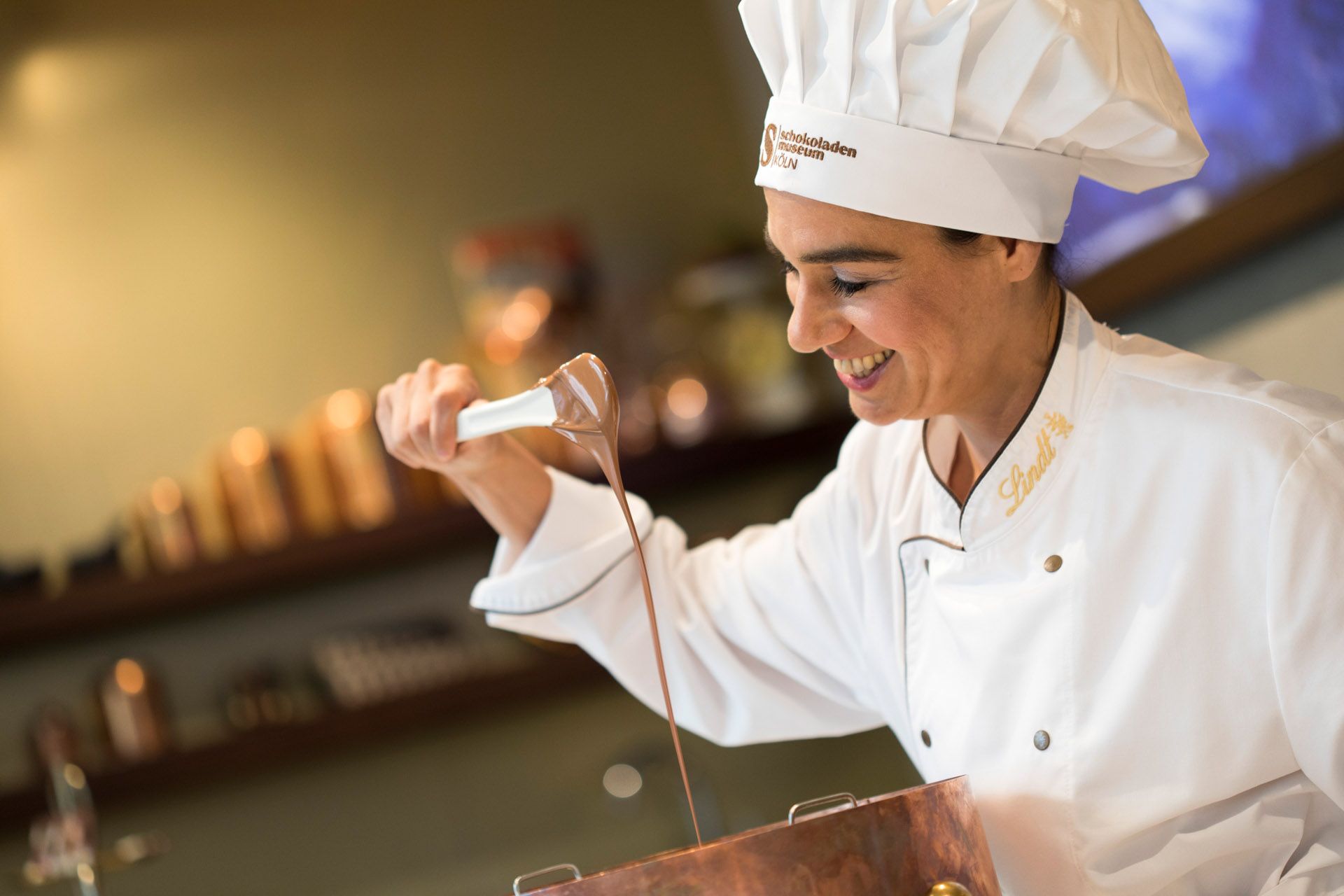
Chocolate is a piece of happiness, just like this museum!
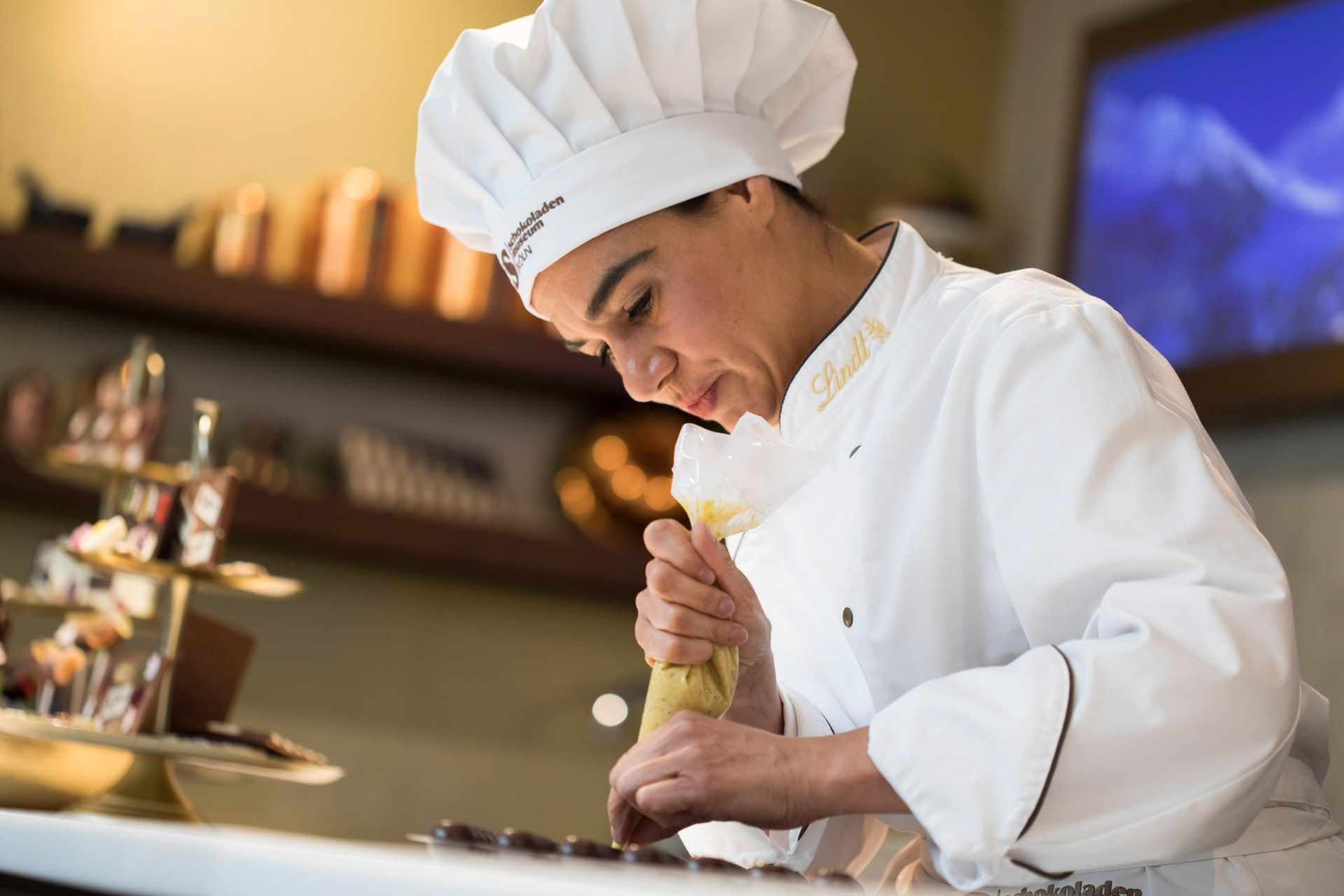
Chocolate is a piece of happiness, just like this museum!
In the museum exhibition, other visitors have become aware of the slender woman in her typical work clothes. They listen with interest to her explanations about the origins of chocolate in Central and South America and then take a closer look at the clay cup with the image of a monkey. The vessel, dating from 850 AD, is one of the oldest surviving examples of the 5000-year history of cocoa, which can be seen in Cologne thanks to the passion for collecting of the manufacturer Hans Imhoff. The then owner of the Stollwerck factory fulfilled a long-cherished dream by building the museum. Since then, 14 million visitors have been interested in the modern production facility, the historical exhibits and the exotic plants in the tropical house. And the number is growing every day. Aiga has a simple explanation for this:
"Chocolate is a piece of happiness, just like this museum."
A smile crosses her face. And you can see that she is already looking forward to when it gets cold outside again and she whips up a hot chocolate. Sometimes with and sometimes without red wine.
Hot chocolate with red wine
- 120 g dark chocolate (60% cocoa content)
- 80 g milk chocolate
- 0.5 litre red wine (fruity and dry)
- As a non-alcoholic alternative, we recommend pomegranate juice or aronia juice
- 1 cinnamon stick
Preparation:
Break the chocolate into pieces and melt in very little water (approx. 1 shot glass) in a saucepan. Add the cinnamon sticks. Add half of the wine, dissolve the chocolate in it and simmer briefly, stirring constantly. Pour in the rest of the wine and heat briefly, remove the cinnamon stick. The drink is then ready to drink.
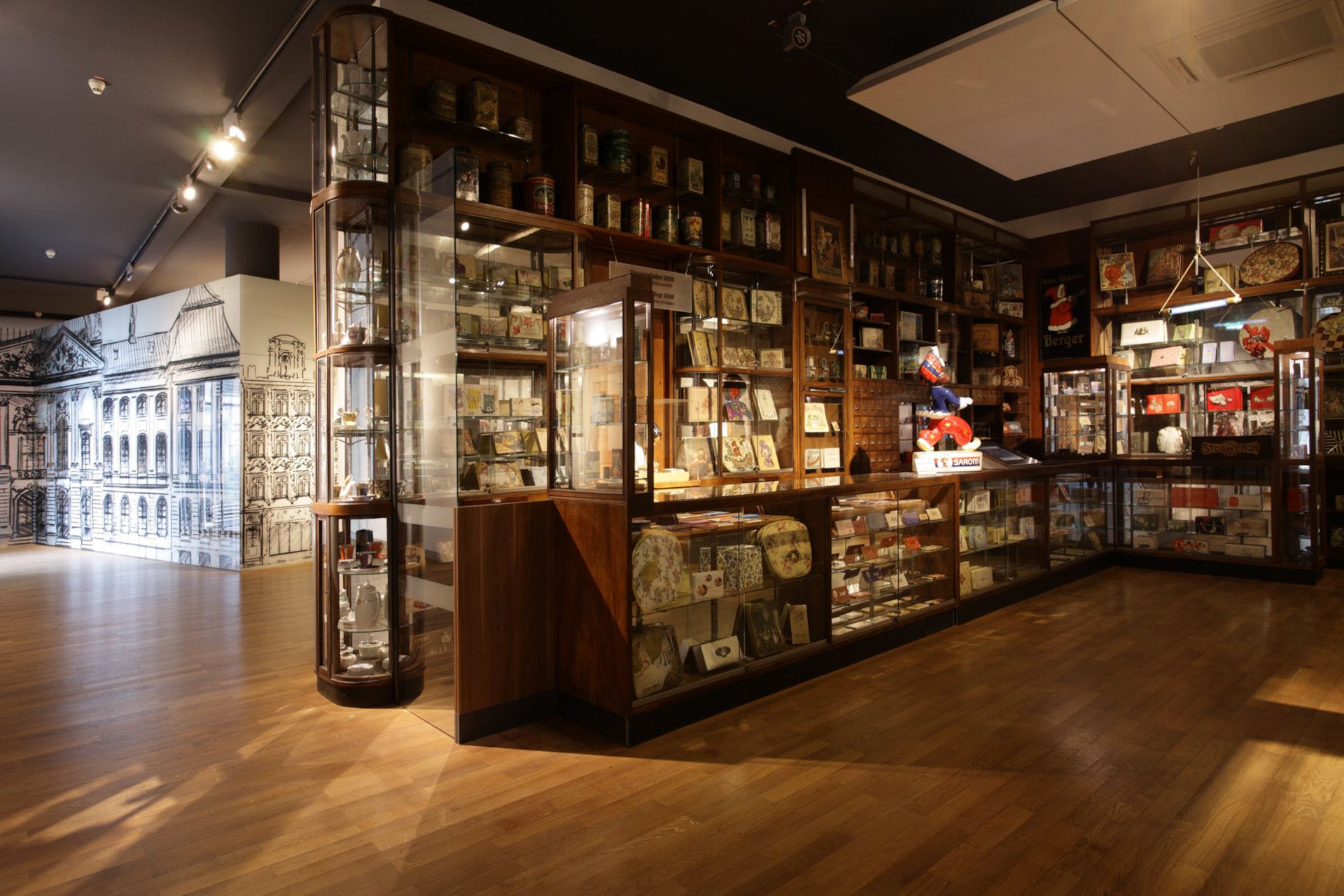
But there are even more sweet temptations. In addition to guided tours and tastings with wine, whisky or craft beer, the Chocolate Museum also offers special courses in which participants can create their own delicacies in milk or dark chocolate. In the chocolate course, the chocolate expert also reveals the secret behind the exquisite mango-vanilla and cassis truffles. And she explains how to properly "make up" hollow figures. "It's more complicated than you think," she says as she demonstrates to the audience behind the glass wall how to turn the mould so that the chocolate is properly distributed.
Ralph Sondermann, Tourismus NRW e.V., Dekorierte Schokolade im Schokoladenmuseum Köln Ralph Sondermann, Tourismus NRW e.V., Pralinen werden befüllt im Schokoladenmuseum Köln Ralph Sondermann, Tourismus NRW e.V., Befüllte Pralinen im Schokoladenmuseum in Köln Schokoladenmuseum Köln, Trüffelproduktion im Schokoladenmuseum Köln
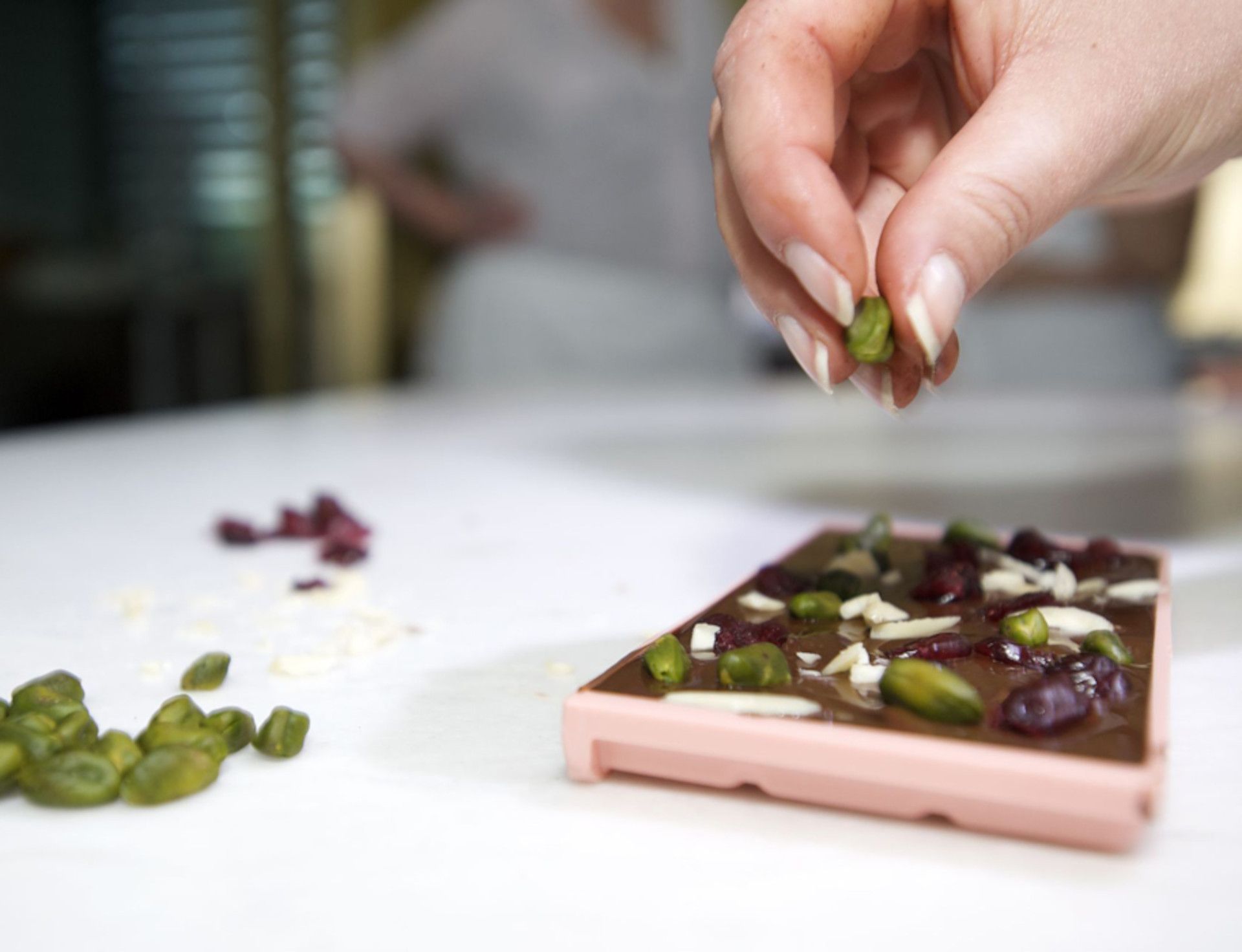
It didn't take long for the three floors of the museum to fill up. Visitors from all over the world, families with and without children, come to the Rhine every day to see the world's largest exhibition on cocoa and chocolate and snack on the maître's unusual creations. At the touch of a button, a robot "serves" them the small chocolate bars, known as nappos, which are produced live in the museum. And they stand closely packed in front of the glass workshops where the maître demonstrates her craft. Some museum guests wave as Aiga taps the chocolate from the silver tap and pours it into a mould. She then taps the mould firmly on the table to evenly distribute the sometimes sugary-sweet, sometimes bittersweet melt and then slides it into the fridge. You can choose any other ingredients you like for your favourite chocolate bar, be it gummy bears, marshmallows, almond brittle or candied oranges.
If you like, you can of course also get your commemorative plaque with a chilli note. "The oldest hat," waves the expert off. "In the past, chocolate was always served with spices," she says and reveals one of her favourite recipes. When it's crisp and cold outside and darkness falls, she likes to melt a piece of dark chocolate and then top up the glass with a little red wine. "Any mulled wine can compete with that." Mmmh. The aroma immediately fills the nose. Who wouldn't want to snuggle up in a blanket, warm their hands on the hot mug and simply savour it?
